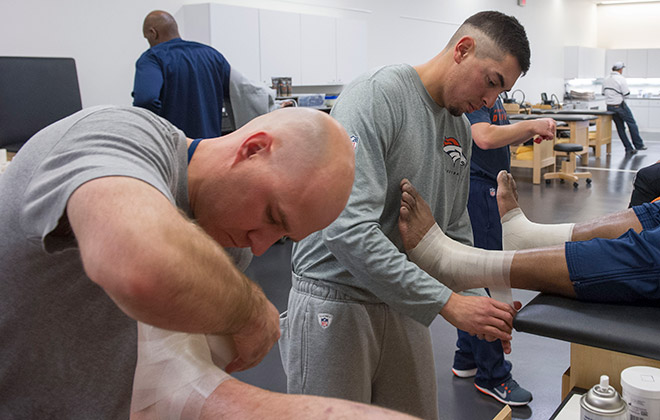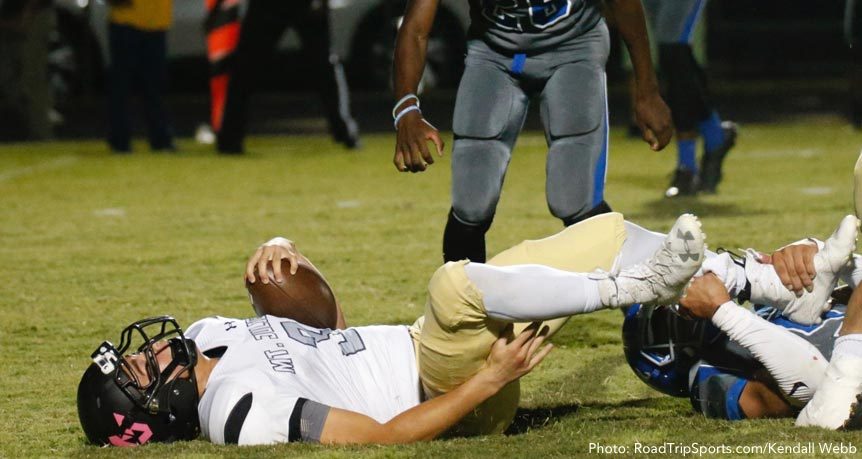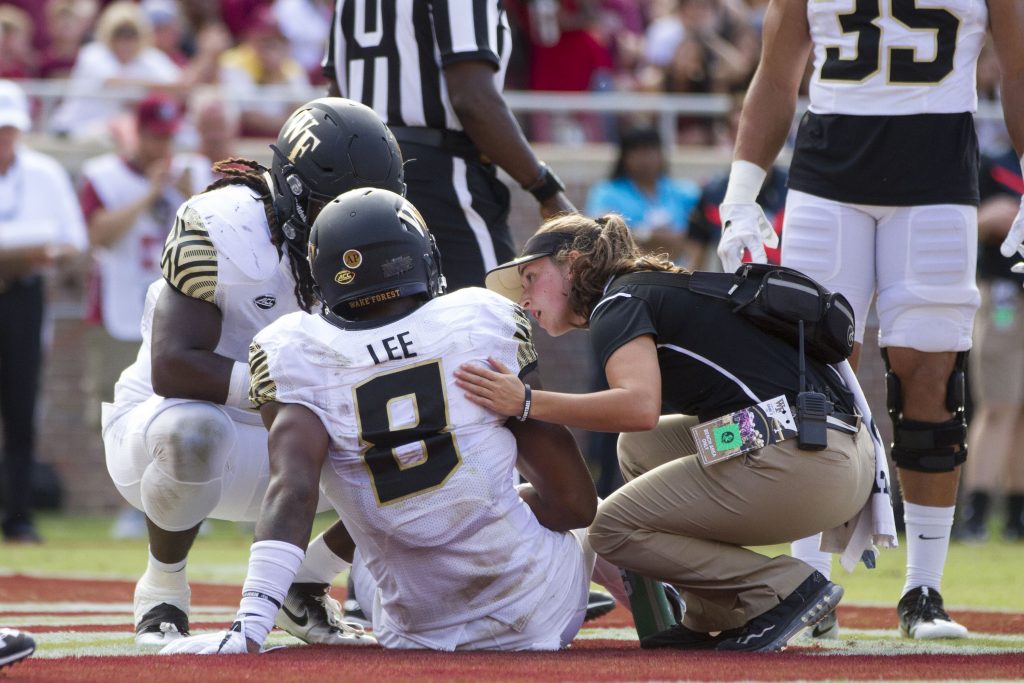
Article reposted from The Purcell Register
Author: The Purcell Register
Purcell is among 150 school districts across four states selected to receive an athletic trainer grant through the NFL Foundation.
Superintendent Jason Midkiff announced the 3-year award at Monday’s school board meeting.
The district asked for $48,100 and will receive $36,000.
The award will pay $20,000 the first year, $11,000 in year two and $5,000 in the final year.
Midkiff and Tim Arnold worked together on the grant application.
The grant will enable Purcell Schools to “expand the care we give our student athletes and also help and students who might be interested in going into the (athletic trainer) field,” the superintendent explained.
The pilot program targeted just four states – Oklahoma, Arizona, Illinois and Oregon.
The grant program is administered by the Korey Stringer Institute at the University of Connecticut, which will research the program’s impact and impact of athletic trainers on the health outcomes of student athletes.
The institute is named for a former Minnesota Viking professional football player who died from exertional heatstroke in 2001.
“The massive responsibility of keeping many hundreds of athletes safe at a particular high school should never be the responsibility of a sport coach or the athletic director, they have no training to properly handle this task,” said Douglas Casa, chief executive officer of KSI . “We are very proud to partner with this grant program that has a primary goal of increasing the number of schools serviced by an athletic trainer and to enhance the amount of medical care for those that already have some.”
In its application, Purcell Public Schools reported high school enrollment of 320.
Of that number, 150 students – or 46.9 percent – participate in sports.
There are 10 sports offered at the high school.
Co-sponsors with the NFL Foundation and KSI are Gatorade, the National Athletic Trainers’ Association and Professional Football Athletic Trainers Society.
Expenditures from the initial $20,000 will include an ice machine, $5,000; automated external defibrillators, $3,500; ellipticals, $2,000; upper extremity bike and treadmills, $1,500 each; electrical stimulation, treatment tables (football), and hydro collator, $1,000 each; equipment/supply bags, $750; baps board, $650; locking cabinets (football), $600; and foam rollers, TheraBands and airex pad, $500 each.
In the second year, the grant allocation is ice machine (baseball, softball, track complex), $5,000; AED machines, $3,500; water bottles/stands/jugs, $1,000; crutches/splints/braces, $900; and locking cabinets (basketball), $600.
The totals for year three are AED (baseball/softball complex), $2,900; training tables (basketball/baseball-softball complex), $1,500; and locking cabinets (baseball-softball complex), $600.
According to KSI, an athletic trainer is a licensed medical professional who has specific expertise in preventing, recognizing, treating and rehabilitating athletic injuries.
However, nearly two-thirds of high schools across the country lack a full-time athletic trainer and almost 30 percent of high schools do not have any athletic trainer at all.


